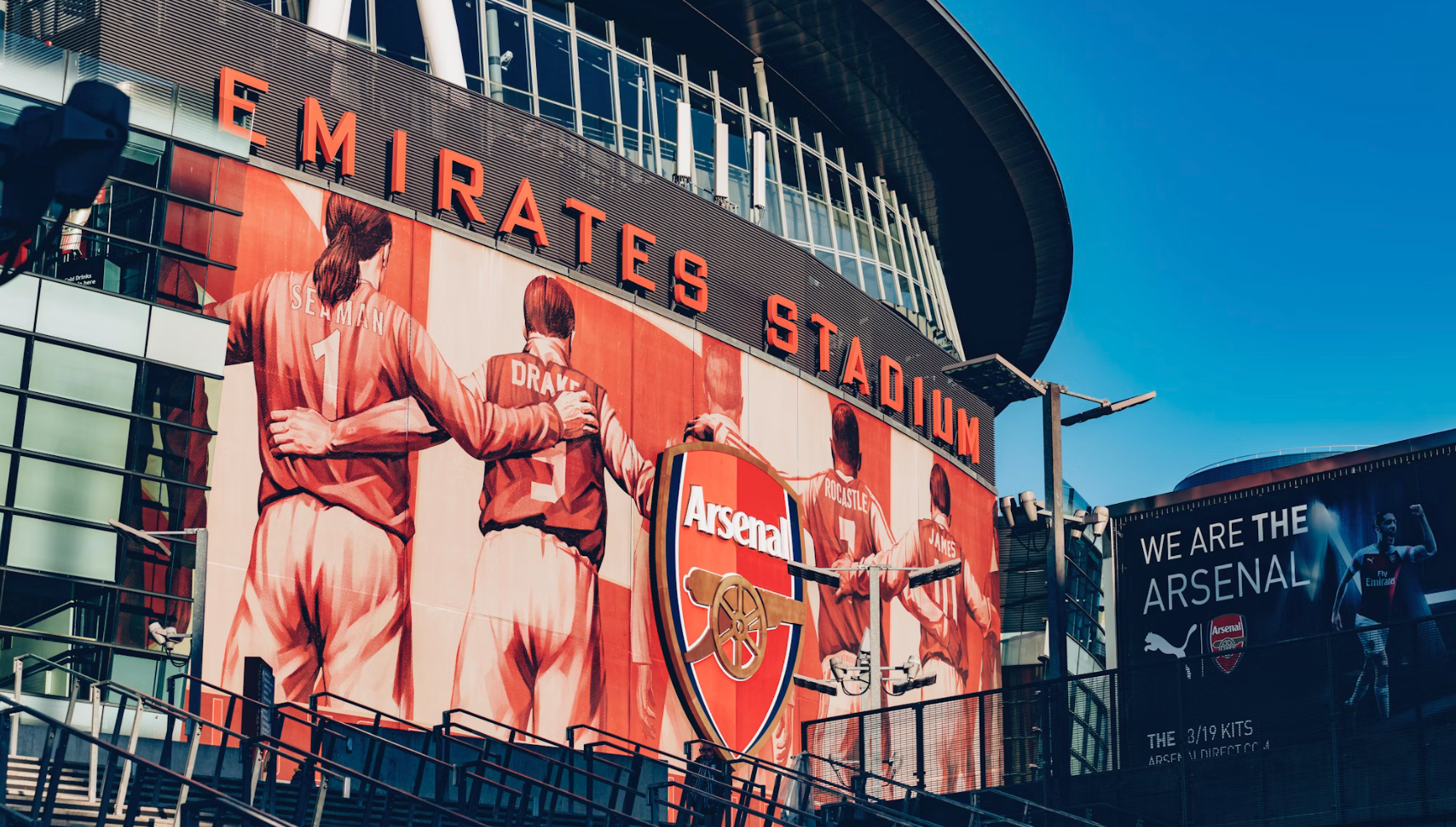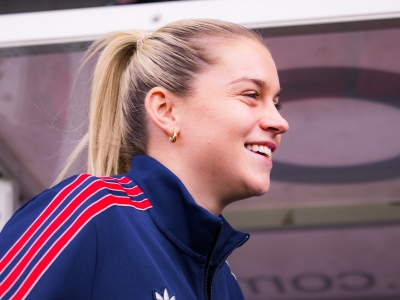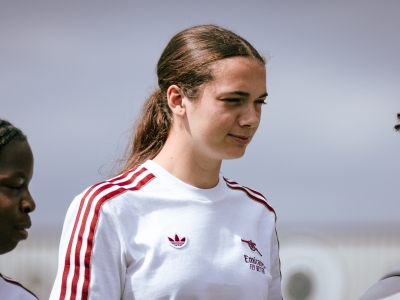There’s something uniquely thrilling about being an Arsenal fan when hope collides with the improbable.
From predicting wild last-minute turnarounds to insisting on title dreams when the odds look bleak, Gooners have built a reputation for fearless optimism that often defies logic and statistics.
These bold forecasts aren’t just empty boasts—they’re woven into the very fabric of Arsenal’s history, passed down in pub debates, social media threads, and matchday rituals.
This article dives into why these daring predictions matter so much, how they become cherished stories among generations of supporters, and what they say about the enduring power of hope and belief in football.
If you’ve ever made a prediction that sounded impossible—or celebrated when one came true—you’ll feel right at home here.
Why Arsenal fans thrive on bold predictions
Spend a few minutes among Arsenal supporters and you'll spot a pattern: hope rarely dies, even when defeat seems certain.
This culture of daring predictions isn’t just optimism—it’s almost an act of faith. Many Gooners grew up watching dramatic turnarounds and unforgettable moments, so believing in the impossible becomes second nature.
There’s also a social aspect. In pubs, online groups, and family WhatsApp chats, predicting outrageous wins or unlikely goal scorers sparks friendly debates and keeps the excitement alive—even during tense times.
Making these forecasts is part ritual, part release valve. It lets fans imagine best-case scenarios when reality feels grim. You’ll hear someone say “We’re winning 3-2 with an injury-time goal” as much to stir hope as to tempt fate.
The digital age supercharges this habit. Platforms like Stake Hunters let supporters log their wildest hunches and see how others are calling it too. There’s genuine thrill in staking your reputation on a crazy prediction and watching it come good—or laughing together when it doesn’t.
Beneath it all is the simple truth that football would be dull without surprises. Arsenal fans know this better than most—sometimes you need to dream big just to keep loving the game.
Legendary predictions that became Arsenal lore
Sometimes, what starts as a wild hunch ends up as football folklore. Arsenal fans have a long tradition of making bold calls that seem outrageous in the moment—only to watch them unfold on the pitch.
These predictions become the stories Gooners share over pints and on message boards. Whether it’s an unlikely scorer, a last-minute winner, or a shock title run, the moments when a supporter calls it right stick around far longer than the final whistle.
What’s striking is how these stories are passed down through generations. Older fans recount tales from decades past; younger ones relive viral social media moments. All of them add layers to the club’s identity, reminding us that hope and daring are baked into Arsenal DNA.
The 1989 Anfield miracle: Fans who saw it coming
No prediction has echoed louder among Arsenal fans than what happened on May 26th, 1989. The scenario: Arsenal needed to beat Liverpool at Anfield by two goals to snatch the league title—something most neutrals dismissed as fantasy.
Yet, in pubs and living rooms across North London, there were die-hards who insisted they’d seen this ending before it happened. Some called the exact scoreline: 2-0 to the Arsenal. Others just felt something special brewing in their bones.
A Fan Oral History: Anfield 1989 published on Gunnerstown captures these hopes and anecdotes in vivid detail—proof that belief can be just as real as results. For Gooners, telling and retelling these predictions is almost as satisfying as winning itself.
From social media to stadiums: Viral Arsenal predictions
Fast forward to today, and bold forecasts don’t just live in pub banter—they explode online. The rise of Twitter, forums like Reddit’s r/Gunners, and fan YouTube channels means every hopeful pre-match tweet or confident matchday selfie can go global within minutes.
I’ve seen threads where someone predicts an Eddie Nketiah hat-trick or posts “3-2 Arsenal incoming” when trailing at halftime. Sometimes these posts are pure wishful thinking; other times they end up spot-on, earning instant cult status among fellow supporters.
The impact is huge when one of these viral calls comes true—it sparks memes, reaction videos, even celebratory meetups at the Emirates. What was once shared between friends now becomes part of digital folklore for tens of thousands of Gooners worldwide. These stories remind us that no prediction is too wild if you believe enough—and sometimes that belief is all it takes to make magic happen.
The science (and superstition) behind football forecasting
Ask any Arsenal fan, and you’ll hear predictions that range from the razor-sharp to the wildly hopeful.
Some Gooners trust spreadsheets and stats, while others would rather hold onto a lucky scarf than pore over xG charts.
This blend of data, gut feeling, and ritual is at the heart of football forecasting culture—and Arsenal fans might be its most passionate practitioners.
The modern era has seen a surge in data-driven predictions, with odds trackers and analytics shaping how fans approach their forecasts. At the same time, rituals and superstitions remain stubbornly popular.
For many supporters, it’s not just about logic—it’s about faith, habit, and community. The result? A culture where magic and mathematics collide every matchday.
Data, odds, and the art of the long shot
Walk into any North London pub before kickoff and you’ll find heated debates over form tables and player stats.
Modern Arsenal fans have more information at their fingertips than ever. Some obsessively track passing percentages or injury news. Others check betting odds to spot value in long shots or unexpected results.
Deloitte’s 2023 sports fan insights report shows that today’s supporters—especially younger ones—are blending analytics with instinct when making football predictions. Social media has only amplified this trend by making it easier to share theories, hot takes, and last-minute team updates with thousands of fellow fans in real time.
Yet for all the talk of algorithms and probability models, plenty still ignore the numbers if they “just feel” a result coming. There’s something stubbornly romantic about sticking to your hunch—even if history says otherwise.
Superstitions and rituals: why fans believe in magic
If you think stats are king among Gooners, just listen on a matchday morning as routines play out across kitchens from Islington to Ivory Coast.
I’ve met Arsenal supporters who swear by wearing the same socks for every big game or who always turn off their phones at halftime if things are going well. There are stories of entire families sitting in identical spots on the sofa week after week—all convinced that one break in tradition could jinx a win streak.
Matchday Rituals Study backs this up: Heineken’s 2023 fan survey found half of football fans rely on some form of ritual before matches—and nearly as many believe these habits actually sway results. The study even highlights Arsenal fans who cling to favourite seats or pre-match meals as lucky charms.
No matter how advanced prediction tools become, superstition remains part of football’s DNA—fueling hope when logic runs thin and helping keep every forecast delightfully unpredictable.
When predictions go wrong: the humour and heartbreak of being a Gooner
Every Arsenal fan has a story about a prediction that went wildly off the rails. The club’s history is packed with bold forecasts—sometimes they end in glory, but often they crash and burn in spectacular fashion.
What makes these moments memorable isn’t just the embarrassment of getting it wrong, but how the community responds together. Whether it’s predicting an easy win over Spurs only to suffer a last-minute defeat, or declaring a new signing will break records before they fade into obscurity, Gooners know how to laugh at themselves.
Rather than hide from failed forecasts, Arsenal fans turn them into running jokes. Memes flood social feeds, group chats light up with gentle ribbing, and each miss adds another layer to the club’s colourful folklore.
Infamous misses: predictions that backfired
The most spectacular misses often become instant classics among supporters. Who can forget the wave of optimism before that Champions League second leg against Bayern Munich—a match some predicted would be “a miracle comeback” only to end in crushing defeat?
I’ve seen friends call for comfortable wins on cold Tuesday nights at Stoke, only to eat humble pie when things unravel. Yet it’s this collective misfortune that brings fans together. It turns individual blushes into shared experience—everyone’s got their own story of being hopelessly wrong about Arsenal.
There’s something oddly comforting in knowing you’re not alone when your faith gets tested by football’s unpredictability.
From banter to bonds: how fans cope and connect
The aftermath of a blown prediction quickly shifts from disappointment to self-aware comedy within the Arsenal fanbase. Social media lights up with memes poking fun at missed calls, while WhatsApp groups fill with gifs and clever one-liners.
This sense of humour isn’t just for show—it’s how fans process letdowns and keep spirits high. According to a Football Banter & Coping analysis from 2023, football communities use self-deprecating humour as a way to bond after bold predictions flop. Wrong forecasts become inside jokes that strengthen camaraderie instead of causing division.
No matter how many times hope turns into heartbreak, Gooners prove there’s always room for laughter—and another wild prediction next weekend.
Conclusion
Impossible predictions are woven into the fabric of being an Arsenal fan.
They’re not just hopeful guesses—they reflect a deep belief in the club and a refusal to let go of dreams, no matter how unlikely.
Every forecast, right or wrong, brings Gooners together and adds to the shared history that makes following Arsenal unique.
These moments of boldness spark laughter, inspire stories, and remind us all why football is so unpredictable and beloved.
The next time an Arsenal fan predicts the impossible, it’s more than optimism—it’s what keeps the heart of the club beating strong.








